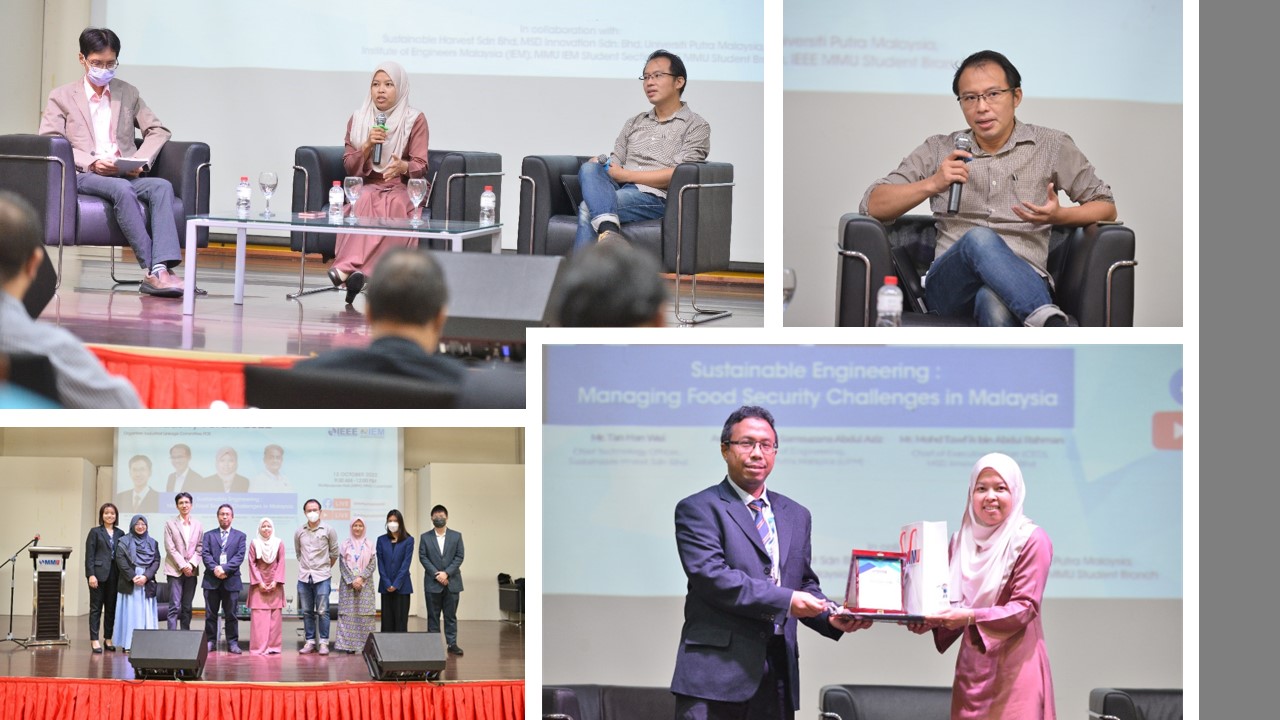More than 90 participants attended the FOE Industry Forum 2022, entitled “Sustainable Engineering: Managing Food Security Challenges in Malaysia” on 12th October 2022 at Multipurpose Hall (MPH), Cyberjaya campus. The event was also streamed live via MMU YouTube and Facebook channels, which received more than 500 views at the end of the event. The forum was jointly organised by the Industrial Linkage Committee of FOE, the Institute of Engineers Malaysia (IEM), the MMU-IEM Student Section, and the IEEE MMU Student Chapter.
The forum aimed to showcase the challenges and roles of different industries regarding their involvement in developing technology to solve the problems related to food security. The forum was opened to the public and was recognised as a Continuous Professional Development (CPD) activity by the Board of Engineers Malaysia (BEM) for individuals seeking to gather CPD hours for the annual renewal of their professional engineering membership.The panellists included Mr. Tan Han Wei, Chief Technology Officer, Sustainable Hrvest Sdn Bhd, and Assoc. Prof. Dr. Samsuzana Abdul Aziz, Department of Biological and Agricultural Engineering, Faculty of Engineering, Universiti Putra Malaysia (UPM). The event was successfully moderated by Dr. Foo Yee Loo, Senior Lecturer of the Faculty of Engineering (FOE).
During the forum, the panellists shared their views on how the interruption of the global supply chain affects local food supply, emphasizing the need to have a continuous local food supply in facing any unexpected challenges in the future. They highlighted the potential of smart agriculture technology to increase the yield and quality of agricultural products. They discussed the current penetration rate of smart technologies in Malaysia’s agricultural activities and the local farmers’ acceptance level of the technology.
The dialogue also covered how universities can groom talent to contribute to the smart agriculture industry. They emphasised that engineers must understand farmers’ problems and design a specific solution based on their needs. They also highlighted that smart agriculture does not intend to substitute the workforce but aims to reduce inefficiency. In conclusion, the collaborative efforts among various parties, including government agencies, research institutions, agricultural industry players, and engineers, will increase the adoption of smart farming, contributing to a continuous, high-quality food supply in Malaysia.

